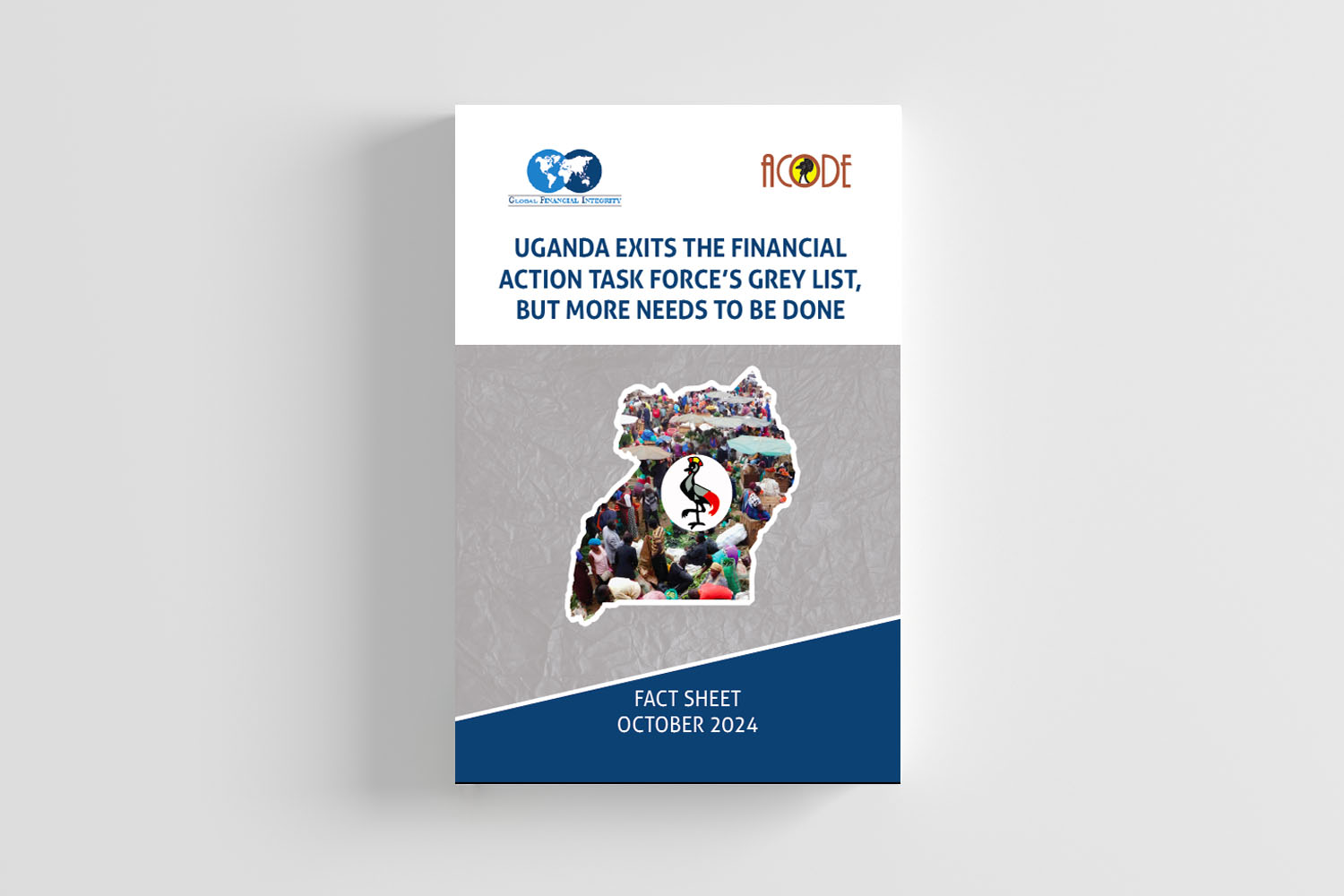- Home
- News & Information
- News
New Factsheet Analyzes Uganda’s Exit from FATF Grey List and the Road Ahead
Posted on: 2024-12-05 11:42:01

Global Financial Integrity (GFI) has collaborated with ACODE (Advocates Coalition for Development and Environment) to release a new factsheet on Uganda's recent removal from the Financial Action Task Force (FATF) grey list. The factsheet examines Uganda's progress toward FATF compliance and the ongoing challenges in combating money laundering and terrorist financing.
The factsheet highlights the key questions: What is the Financial Action Task Force, and what role does it play? The FATF is an international watchdog that sets standards and promotes the effective implementation of legal, regulatory, and operational measures to combat money laundering, terrorist financing, and other related threats. The factsheet explains the implications of being on the grey list, highlighting that countries on the list face enhanced scrutiny and potential economic consequences due to perceived risks in their financial systems.
Uganda was placed on the FATF grey list in 2020 due to deficiencies in its framework for combating money laundering and terrorist financing. However, after implementing significant reforms, Uganda successfully exited the grey list in 2023. The factsheet details how Uganda achieved this milestone, emphasizing the strengthening of regulatory mechanisms and the increased cooperation between the Ugandan government and international partners.
In addition to reviewing Uganda's achievements, the factsheet provides insights into what FATF standards and recommendations Uganda and other countries must comply with. These include improving transparency in financial transactions, enhancing the capabilities of financial institutions to detect suspicious activities, and promoting cross-border cooperation to curb illicit financial flows.
Despite Uganda’s progress, significant challenges remain. The factsheet highlights challenges that the country still faces in combating money laundering and terrorist financing, particularly in areas such as strengthening the capacity of law enforcement agencies and ensuring effective prosecution of financial crimes, and it offers key recommendations.
“Uganda’s exit from the grey list is a commendable achievement, but we must not lose sight of the fact that the battle against money laundering and terrorist financing is far from over. Continued vigilance and stronger institutional frameworks are crucial,” said Onesmus Mugyenyi, the Deputy Executive Director of ACODE.
Philip Nyakundi, Policy Director at Global Financial Integrity, added, “While Uganda’s progress deserves recognition, it is essential to address the remaining gaps and challenges. Effective enforcement, adequate resources, and a commitment to international cooperation will be key to ensuring Uganda’s financial systems remain resilient and transparent.”
PDF VersionMore News
Past Event
High-Level Policy Dialogue on the Budget
Press Release: Global Corporate Tax Deal – An African Perspective
GFI & ACODE Evaluate the Key Elements, Opportunities, and Challenges of the OECD/G20 Tax Deal
Speech by Mr Emmanuel Tumusiime-Mutebile, Governor of the Bank of Uganda, at ACODE Dialogue on 25 February 2015
The impact of oil price volatility and its implications for the economy and for macroeconomic stability
Press Release
Press Statement on the Key Outcomes of COP 28
